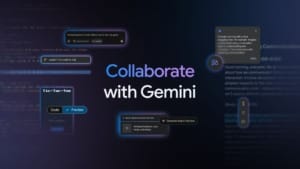Mendix unveils major update to power agentic AI development and enterprise automation
Mendix 11 introduces advanced agentic AI tools, enhanced automation, and stronger governance to accelerate enterprise software development.

Mendix, a Siemens business, has introduced a significant update to its low-code platform aimed at transforming how organisations build and deploy software. The new release integrates advanced agentic and generative AI capabilities, giving developers and business teams greater tools to design, test and launch intelligent applications at scale.
Table Of Content
Central to the update is a stronger focus on AI-driven development across the entire software development lifecycle (SDLC). Teams can now use Create with Maia, a GenAI-powered tool, to turn brainstorms, diagrams and requirements into actionable plans and production-ready prototypes. Alongside Maia, the new Agents Kit and Agent Builder lower the barriers to AI adoption by allowing enterprises to build intelligent, agent-based applications using low code. These features enable faster prototyping, fewer manual iterations and improved governance from project initiation to deployment.
The release also introduces microflow and workflow generation, where users can describe business needs in natural language and instantly create functional logic. Additionally, the Model Context Protocol (MCP) now makes it easier to give AI models secure access to external data and tools, helping organisations develop autonomous and adaptable systems without complex coding.
Driving end-to-end business process automation
Beyond development speed, Mendix’s latest update tackles the growing need for more agile business process automation. Many organisations struggle with rigid systems that cannot handle dynamic, data-heavy workflows shaped by human decision-making. The platform now supports agentic workflow orchestration, enabling Mendix Workflow to call AI agents and automate tasks more intelligently.
Dynamic case management offers greater flexibility for processes that require human input, while the new Global Inbox consolidates tasks from distributed workflows into a single, adaptive interface. These additions aim to simplify integration across fragmented systems and allow businesses to digitise complex processes faster, improving efficiency and reducing costs.
Strengthening governance, compliance and security
As companies adopt AI more widely, governance and security remain key priorities. The update introduces AI Guardrails, helping ensure that large language models deliver safe and unbiased outputs. Enterprises can customise these guardrails to meet compliance needs while maintaining control over AI-generated interactions.
The platform’s enterprise-grade governance has been enhanced with policy-driven controls, software composition insight and full auditability. New cloud innovations, such as GenAI resource packs and private connectivity options, make it easier for companies to scale securely across private, public and hybrid cloud environments.
Mendix has also expanded its internationalisation programme, making its Studio Pro integrated development environment available in Korean, Japanese and Mandarin. This supports the company’s growth in Asia-Pacific and helps more teams contribute to software development in their native languages.
Market adoption and continued innovation
Organisations are already benefiting from the platform’s new capabilities. Payroll technology company datascaleHR, for example, built its AI-native platform on Mendix to accelerate feature testing and improve customer alignment. Luke Zawadzki, Head of Engineering at datascaleHR, said the platform “allows us to test drive living, breathing functionality early in the process and discover problems or make adjustments early.”
Raymond Kok, CEO at Mendix, said the release reflects the company’s mission to democratise AI. “With these new updates, the platform allows users to incrementally explore and put into production AI solutions – starting off with the real basics, then working up to prompt engineering and integrating more complex tools – all via low code,” he said.
Mendix 11 is now generally available for all users, providing enterprises with a secure and flexible ecosystem for next-generation AI-powered development and automation.
















